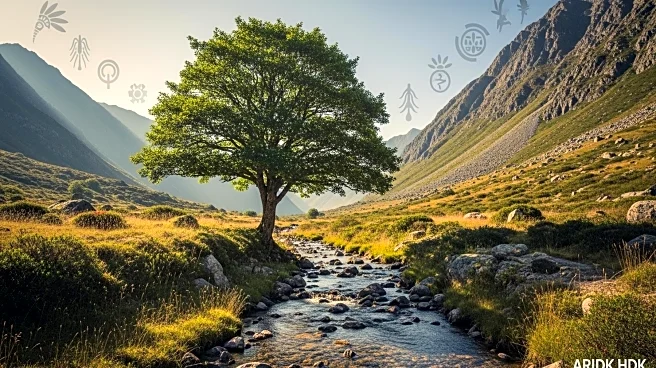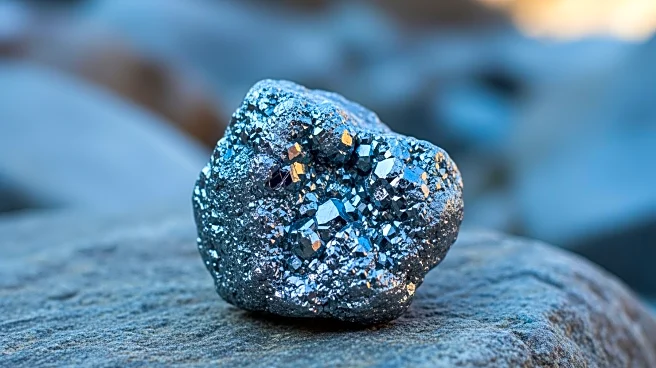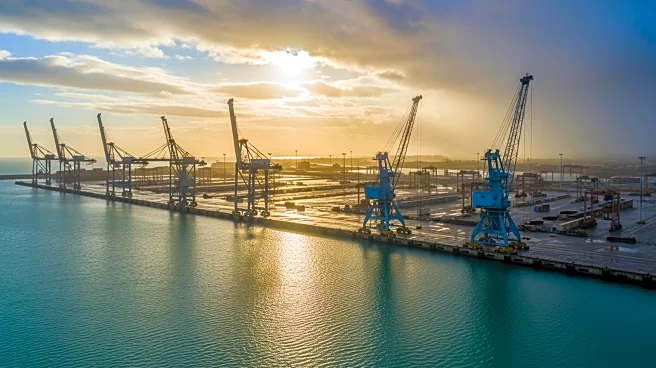What is the story about?
What's Happening?
In the High North, EU-designated strategic mining projects are facing significant resistance from indigenous groups and environmental activists. The Nussir copper mine in Norway, crucial for Europe's green transition, has sparked protests due to its potential impact on local ecosystems and indigenous Sámi communities. Activists argue that the mine threatens traditional reindeer herding and the environment, despite its strategic status under the EU's Critical Raw Materials Act. Similar tensions are evident in Sweden, where the Per Geijer deposit in Kiruna is set to supply rare earth elements but faces opposition from the local Sámi community. These projects are part of the EU's broader strategy to secure critical raw materials necessary for technological and green advancements.
Why It's Important?
The resistance to these mining projects highlights the complex balance between environmental sustainability, indigenous rights, and economic development. The EU's push for self-sufficiency in critical raw materials is crucial for reducing dependency on external sources, particularly from geopolitical rivals like China. However, the fast-tracking of these projects raises concerns about the potential violation of indigenous rights and environmental degradation. The outcome of these conflicts could set precedents for how similar projects are managed across Europe, impacting the EU's ability to meet its climate and technological goals while respecting human rights and environmental standards.
What's Next?
As tensions continue, legal challenges are expected to increase, with Sámi groups likely to turn to courts to defend their rights. The EU and national governments may need to engage in more inclusive dialogues with indigenous communities to find a balance between development and rights protection. The strategic importance of these projects suggests that the EU will continue to push for their completion, but the growing resistance could lead to delays and necessitate policy adjustments to address the concerns of affected communities.
Beyond the Headlines
The situation underscores a broader ethical debate about the costs of the green transition. While the need for critical minerals is undeniable, the methods of extraction and their social and environmental impacts are increasingly scrutinized. This could lead to a reevaluation of how such projects are planned and executed, potentially influencing global standards for sustainable mining practices.















